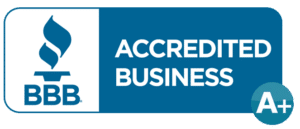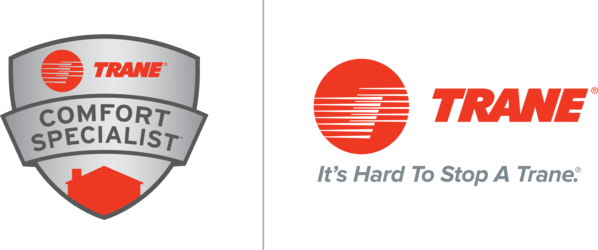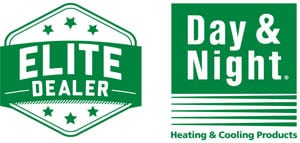We Have Answers For Your Frequently Asked Questions (FAQ).
Air Solutions, Inc in Southeast Texas can answer all your HVAC-related questions. Before you get on the phone, look to see if we already responded to your question online. If you don’t see your question in this list or want more information on a particular topic, give us a call at 409-962-2476. Our experts can give you the information you’re looking for in an instant.
Why does my home comfort system need regular maintenance?
Just like you need to take your car in to the shop for regular tune-ups, such as oil changes or checking out probable problems, your home comfort system should receive the same kind of attention. Regular maintenance by a skilled technician provides numerous benefits to your HVAC equipment, which can help your systems perform efficiently and prevent costly breakdowns.
Where can I find prices for Trane products?
Call Air Solutions, Inc at 409-962-2476 to get a comprehensive quote on Trane equipment.
What is two-stage heating?
With two-stage heating, furnaces may work on two different levels: high and low. Since you can heat your home on the low setting a majority of the time, a two-stage furnace can run longer and more efficiently. Two-stage heating also operates more quietly than traditional furnaces and can offer more even heat distribution and fewer temperature swings.
Will my new furnace work differently than my old one?
Depending on how old your previous furnace was, you could experience a number of differences. Furnaces today are developed to provide more even and efficient heating than ever before. Modern furnaces also better regulate temperature and air flow, moving more air over the heat exchanger than older furnaces.
Additionally, new furnaces are designed to work with other high-efficiency HVAC products, such as air conditioners. The air conditioner blowers give your heating system an extra boost so it can deliver cool air around your home efficiently. Special features like variable speed motors will also help reduce noise associated with operating your equipment and easily meet your family’s airflow needs.
What is the energy efficiency standard for air conditioners?
The Department of Energy recently boosted the minimum efficiency levels for air conditioners, heat pumps and packaged units made after Jan. 1, 2015, since heating and cooling contributes significantly to a home’s total energy usage. The requirements vary by region, so call Air Solutions, Inc for the efficiency standards for Groves.
How can I reduce my energy costs?
Heating and cooling makes up a significant portion of your monthly utility bill. Purchasing HVAC equipment with high efficiency ratings, such as SEER for air conditioners and AFUE for furnaces, is a simple step that can go a long way in decreasing energy output. Beyond these ratings, also think about:
- Routine maintenance – regularly having a professional tune-up your equipment will keep it operating at its peak potential.
- Adding a zoning system – by focusing your heating and cooling on the rooms you use most frequently, you won’t have to pay to heat or cool areas of your home that aren’t used regularly.
- Installing a programmable thermostat – the Department of Energy estimates that a programmable thermostat can decrease heating costs by up to 35 percent and cooling costs by up to 25 percent. Leave it up to your thermostat to turn down the heat when you’re not around and go back to your preferred temperature when you’re home.
Why should I buy a Trane product?
There are a number of reasons to go with Trane, but the top three are:
- You know and trust the name – Trane is known around the world for its quality home comfort products.
- Innovation and high quality – Trane is an industry leader, providing a complete line of innovative solutions for your home comfort needs.
- Commitment to excellence – We are dedicated to offering customers not only quality products, but also quality service. You can trust Trane dealers, like those of us at Air Solutions, Inc, to help you choose the right system for your home, expertly install it, and keep it operating smoothly every time.
How can I improve my home’s indoor air quality?
Boosting your home’s indoor air quality starts with four basic strategies:
- Eliminate – poor indoor air quality leaves your home packed with air pollutants floating around your home, so to improve IAQ, the first step is to eliminate as many pollutants as possible. You can easily do this is by cleaning and vacuuming at least once a week, regularly washing linens and storing cleaning products safely.
- Ventilate – proper insulation is great for keeping your home warm in the winter and cool in the summer, but it also makes it harder for airborne pollutants to escape. Products like our Healthy Climate® ventilation system help swap stale air for fresh, filtered outside air.
- Clean – good ventilation and routine cleaning are a start, but Healthy Climate® air filters, germicidal lights and PureAire™ purification systems take your IAQ to the next level by capturing microscopic particles, killing germs and removing particles and germs while destroying chemical vapors.
- Monitor – programmable thermostats will help you monitor the humidity levels and temperature to help prevent particles and germs from accumulating and keep your home comfortable.
How do I know which indoor air quality product will work best for my home?
Our Healthy Solution Finder lets you choose details specific to your family and home and will help you find equipment best suited to meet your needs. You may also consult with Air Solutions, Inc experts who can make a recommendation based on their evaluations of your home and current indoor comfort system.
How does an air conditioner work?
You may be surprised to learn that air conditioners don’t technically make your home cooler; they actually remove the hot air and move it outside. This hot air blows across a refrigerant coil on the indoor unit and then is sent to the outdoor unit where it is released. Your air conditioner pushes as much hot air outside as is necessary to reach the temperature you have set on your thermostat.
What is the minimum energy efficiency standard for air conditioners in my state?
Minimum energy efficiency standards can vary by geographic location. Additionally, air conditioners, heat pumps and packaged units made after Jan. 1, 2015, have higher minimum efficiency levels than equipment manufactured prior to that date. The team at Air Solutions, Inc can help you find out the minimum requirements for Groves, let you know if your current equipment meets those requirements or help you find a replacement air conditioner that does.
How can I confirm the model and serial numbers for my cooling unit?
Your system’s service panel has a white label on it, with your system’s model and serial numbers at the top. M/N stands for model number and S/N is the serial number.
What size equipment do I need for my home?
Since equipment size needs vary by home, the best way to determine the proper size equipment for your home is to have a technician from Air Solutions, Inc come out to perform load calculation tests. The tests take measurements such as square footage, insulation value and amount, and more into account to determine your home’s unique HVAC equipment needs.
Can frost, ice, dirt or other debris keep the outdoor unit of my cooling system from operating effectively?
Yes – debris can limit your system’s ability to function effectively. It’s normal for heat pumps to have frost or ice on them during the winter, but many include defrost controls so they can work efficiently regardless of the weather conditions.
What is two-stage cooling?
When a cooling system uses two-stage cooling, it means that there are two levels of operation. This enables the system to work more efficiently since there is one level for milder weather and a second for harsher weather that demands the system work harder. Two-stage cooling also enables more even temperatures so you don’t experience extreme differences in temperature. Aside from better efficiency, other benefits of two-stage cooling include quieter operation and improved humidity control.
Why is my cooling unit freezing up?
When your cooling unit freezes up, there are a variety of reasons why it could be doing so. The most common reasons include: dirty filters, low refrigerant, a dirty evaporative coil and a faulty blower motor or relay. A dirty filter is something you can change as a homeowner, but the others need to be fixed by a professional like those at Air Solutions, Inc. Contact them at 409-962-2476 with any further questions you may have.
What is the best thermostat to use for my cooling system?
Air Solutions, Inc carries a number of great thermostat options for your HVAC systems. The best thermostat for you will depend on a variety of variables, such as whether you want one that’s programmable or not. No matter what kind of thermostat you’d like – or if you’re searching for something that can fit with a home automation system – call Air Solutions, Inc to hear about which thermostats you can choose from. Our team will help you find one that’s right for your system, your family’s needs and your budget.
What is a heat pump?
A heat pump covers both your home’s heating and cooling needs, offering you one HVAC system that can be used year-round. Throughout the warmer months, heat pumps act like an air conditioner, capturing the hot air from inside your home and transferring it outside; in the cooler months, this process is reversed. Heat pumps can be very energy efficient and may produce two to three times more heat than the energy it uses.
When replacing the outdoor unit, should the indoor unit also be replaced?
At Air Solutions, Inc, we do recommend replacing both your indoor and outdoor units at the same time because:
- Today, outdoor systems are built to work with their matching indoor system for the most efficiency. When you replace one system but not the other, you may not see the same energy efficiency levels as if you had replaced them together.
- Thanks to technological innovation, newer systems mean increased efficiency. This is also true for HVAC systems. While the advancements focus on greater heating and cooling efficiency, they also include benefits such as better air handling, filtering and noise reduction.
- If your heating and cooling systems are 10+ years old, they need to be replaced. Older models have outdated technology that is likely contributing to higher energy bills due to poor efficiency. So by replacing your indoor system at the same time as your outdoor equipment, both your systems will provide better energy efficiency that helps you decrease your energy bills and keep your home more comfortable.
Which thermostat is best for my home comfort system?
Air Solutions, Inc can help recommend the right thermostat for you based on your home and current heating and cooling equipment. We have a variety of programmable and nonprogrammable thermostats, which can help increase the efficiency of your home’s furnace and/or air conditioner. View our thermostats or give us a call at 409-962-2476 for more information.
How can I improve my utility expenses?
Your furnace and air conditioner can contribute significantly to your monthly energy expenses. However, these costs can be reduced with innovative and high efficiency products from Trane. You’ll want to look for high SEER and AFUE ratings when you’re in the market for a new air conditioner or furnace, respectively, as higher SEER and AFUE ratings signify higher efficiency products. If you’re not looking for new heating and cooling equipment, consider factors such as: 1. Maintenance: Furnaces, air conditioners and other HVAC equipment work more efficiently when they are regularly maintained. 2. Zoning: When areas of your home are rarely used, you’re spending more money to heat or cool them to the same temperature as the rest of the house. A zoning system enables you to section off different areas of your home and control the temperature by each area. 3. Programmable Thermostats: Programmable thermostats can help you reduce your heating costs by 35 percent and your cooling costs by 25 percent, according to the U.S. Department of Energy.
Why should I get a zoning system?
A zoning system enables you to divide your home and heat or lower the temperature in each part differently. While these systems operate well for buildings that have parts that are infrequently used, they can also be great in situations where you and your family can’t agree on the temperature in different portions of your home. There are a collection of additional pluses of zoning systems, like efficiency and comfort. Browse our selection of zoning systems or give Air Solutions, Inc a shout to see how a zoning system could fit in your home.
 Rated 5.0 out of 5.0
Rated 5.0 out of 5.0




